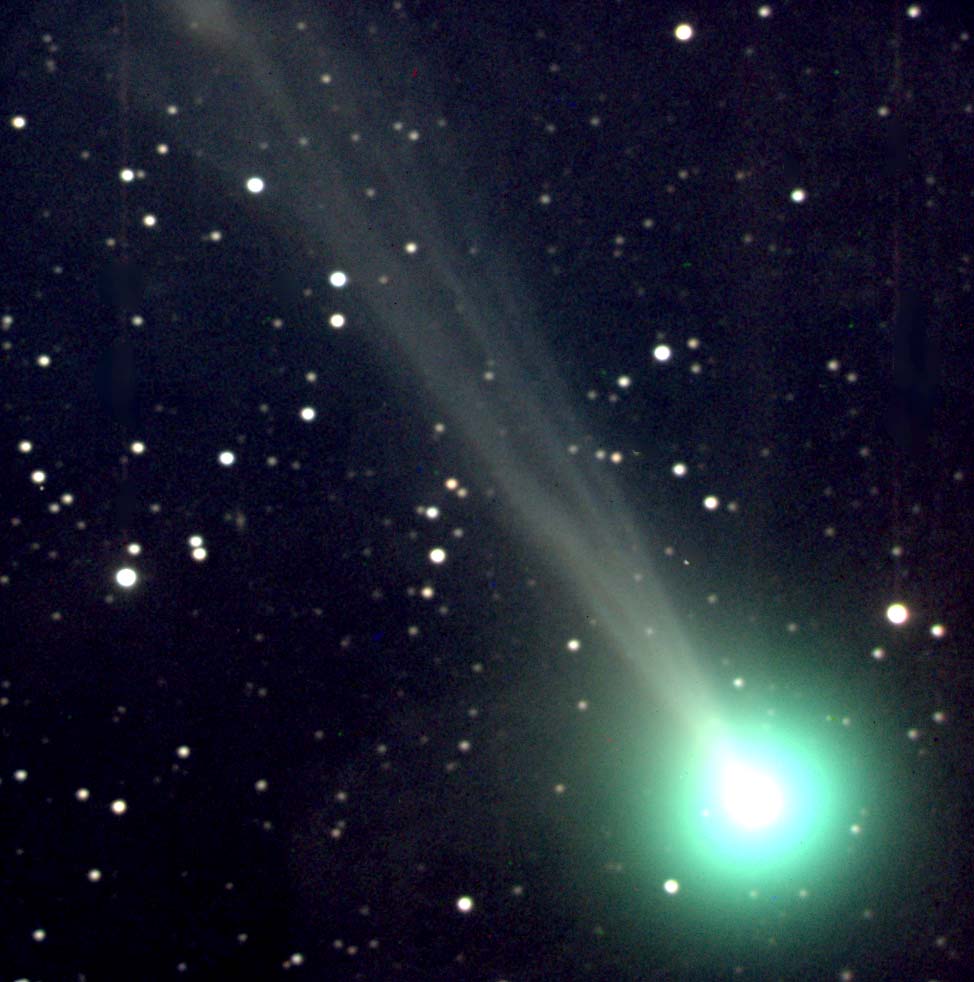Comets
"A ball of ice and rock trailing a long plume of gas. It doesn't herald goblin markets on Hampstead Heath."
If you made your home on a comet, you’d be in for a long winter – perhaps thousands or even millions of years far out in the cold dark of interstellar space. With the onset of spring, the comet begins its long fall towards the sun, which gradually becomes larger than the other stars in the sky. Picking up speed as it passes within the orbit of Neptune, the comet begins to heat up. Gas and dust are flung out in a long tail, made incandescent by solar light, which always points away from the sun.
Primitive man, believing his life to be determined by the position of objects in the sky, was terrified by the appearance of comets, which appeared to hint at unpredictable chaos. In later eras comets began to be understood as far-flung asteroids in extended orbits. Even so, they were viewed with superstitious awe, especially when they appeared in times of conflict or disaster. Some superstitions about comets persist to this day – for example, the belief that wine bottled in the year of a notable comet (called a ‘comet vintage’) will be of exceptional quality.
